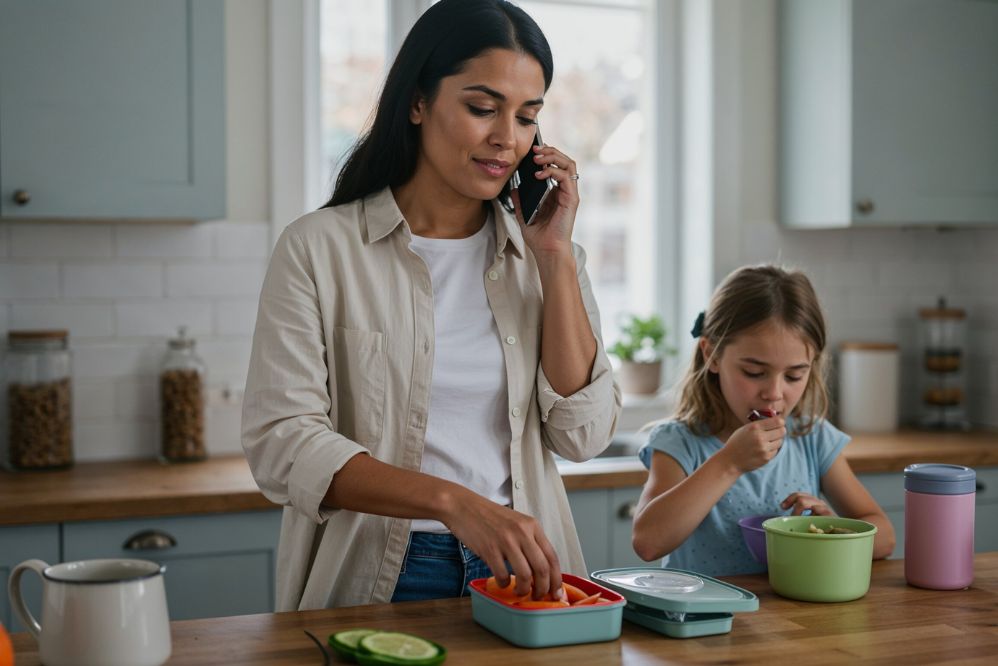Anyone who has done it knows that being a stay-at-home parent isn’t easy. Caring for children and managing a household is a full-time job in itself, and brings with it a unique set of challenges. In addition to the day-to-day difficulties of raising children, stay-at-home parents also experience feelings of loneliness, get too little sleep, and struggle both to find time for themselves and to finish everything on their to-do lists.
While every parent’s situation is distinct, a few best practices are universally helpful to avoid burnout, improve quality of life, and make time at home more enjoyable.
Build a Support System
One of the most jarring aspects of stay-at-home parenting is the sense of complete isolation. Before having kids, you may have enjoyed a robust social life, and at least the water cooler chat typical of most workplaces. As a new parent, you may go all day without any real adult interaction — except, perhaps, at the grocery store. This is especially difficult if you feel that you can no longer relate to those who were previously good friends.
To avoid this alienation, establishing a strong support system at the very beginning is crucial. Support systems can include family, close friends, and anyone else who helps you feel that you’re not in this alone. Parents who lack friends with kids may consider attending parenting events, joining a class, or even finding a group on social media to meet people they identify with.
Find Time for Yourself
Another downside of caring for children 24/7 is that the kids are there when you wake up, they are there when you go to sleep, and you must dedicate all the time in between to kids or kid-related activities. Even during nap times or play dates, you’ll likely have an endless list of chores to address, and may feel guilty about taking time for yourself.
But putting yourself first isn’t something to feel bad about. In fact, it’s completely necessary to maintain your mental health and keep you going strong. Remember that you’re still your own person, with your own interests. Set aside time to spend on a favorite hobby, treat yourself to something nice, or even just take a walk by yourself. Making this a regular part of your schedule can help ensure that you don’t overlook your “me time” and become burned out.
Get More Sleep
Sleep deprivation is an unavoidable downside of having a baby, and can be a risk even as your children grow older. Because your job never really ends, knowing when to call it a day and get some rest can be difficult.
Lack of sleep shouldn’t become a constant in your life, though: Sleep deprivation can affect both mood and cognitive function. So, if you’re not sure why you’re in a bad mood and can’t think straight, you might not be getting enough sleep! To get back on track, make sleep a priority (the unfolded laundry can wait) and enforce a bedtime for yourself. Establishing a regular schedule can improve the quality of your sleep.
Outsource
Although many stay-at-home parents think they should be able to handle everything on their own, the truth is that it does “take a village” to raise a child. If you don’t have a village at your disposal, bringing in some outside help can work wonders. In fact, outsourcing is doubly beneficial: It not only helps you relieve stress on its own, but also gives you more time to invest in building a support system, self-care, and sleep.
So, before you get burned out, accept that being a stay-at-home parent is a tough job, and just as deserving of a personal assistant as any other profession.










